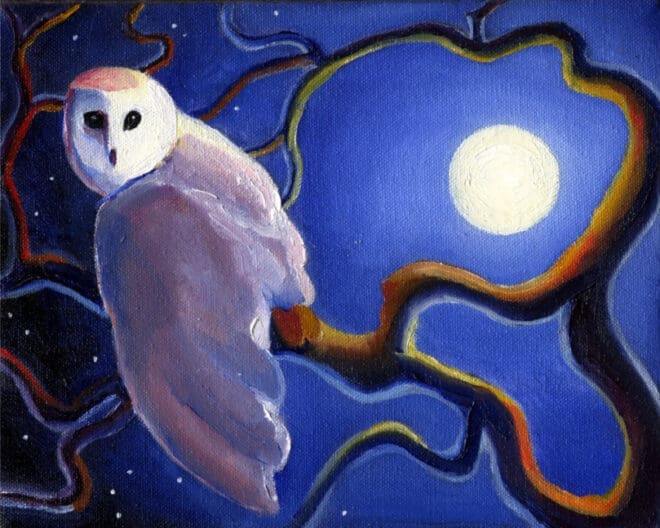Tender smiles on our heavenly Father’s face
By LORRAINE V. MURRAY, Commentary | Published October 28, 2022
On my walks in the neighborhood, I enjoy capturing photos of birds and beasts, which I collect under the heading “Catch of the Day.” Recently, my catch was a fuzzy caterpillar making his way swiftly along the sidewalk, no doubt headed to an important appointment. Another time I took pictures of a butterfly dancing upon a purple flower, and a honey bee sipping water at my birdbath.
One day, I decided to try a different route, which took me by the creek. As I stood watching the water gliding over rocks, I suddenly spotted a great blue heron, fishing for its lunch. Although I’ve seen plenty of these birds on Florida trips, it was a huge surprise to see this fellow in the city. Alas, he flew away before I could record his image, but I hope to meet him there again someday.
St. Therese of Lisieux said, “Everything is a grace,” which is a perfect description of the natural world. Forays into nature are a way to praise the Creator, who made so many lovely birds and beasts with such a variety of shapes and colors. For example, I encountered a beetle on my porch with a beige body emboldened with vivid orange stripes. A miniature work of art, he looked like someone had dipped a delicate brush in paint and carefully decorated him.
The more we study nature, the more easily we may conclude God has a marvelous sense of humor. Caryll Houselander wrote, “If you ever had a little green tree frog and watched him puffing out with a pomposity worthy of a dragon before croaking, you must have guessed there is a tender smile on our Heavenly Father’s face.” I totally agree with her, because armadillos seem like mammals wearing turtle shells, which is a pretty good joke. Every so often a possum shows up in my yard, and when he sees me, he freezes, as if to say, “What the heck are you doing in my territory?” I find it humorous that these small creatures are relatives of kangaroos, since both animals carry their babies in pouches.
A chipmunk shows up every October, perches on a neighbor’s stone fence and spends hours serenading a potential mate with his chirping sounds. Every summer on a magical day, hummingbirds float into my life and sip sweet water from the feeder. Every so often, one will stare at me through the window, perhaps wondering what in the world this giant beast is doing.
It’s easy to miss God’s manifestations, especially when we’re mulling over something that happened yesterday or may occur tomorrow., C.S. Lewis said, “The present is the point at which time touches eternity.” This means that when we get distracted from the present moment, we’re missing the eternal—which is God!
 Little wonder that in Lewis’ book “The Screwtape Letters,” the demons despise the present moment, and rejoice when humans dream about the future or fret over the past. How often my mind scurries into the future, churning out “what ifs” that have no answer. How often it plunges into the ocean of the past, mulling over events that can no longer be changed. One way to return to the present moment is by praying with a psalm: “How marvelous are your works, oh Lord. In wisdom you have wrought them all.”
Little wonder that in Lewis’ book “The Screwtape Letters,” the demons despise the present moment, and rejoice when humans dream about the future or fret over the past. How often my mind scurries into the future, churning out “what ifs” that have no answer. How often it plunges into the ocean of the past, mulling over events that can no longer be changed. One way to return to the present moment is by praying with a psalm: “How marvelous are your works, oh Lord. In wisdom you have wrought them all.”
These days, as I’m falling asleep, I hear the distant, melodious call of the owls, asking the mysterious question, “Who cooks for you?” In the morning, I awaken to the tiny cheeps of finches and sparrows, as they celebrate the golden slivers of fresh light. And don’t forget the rhythmic tapping of nature’s percussionists, the colorfully decorated woodpeckers.
We encounter God in Scripture, but we also discover him in the book of nature. Whether it’s a caterpillar or a chipmunk, a butterfly or a beetle, everything truly is a grace, because everything is a gift from God.